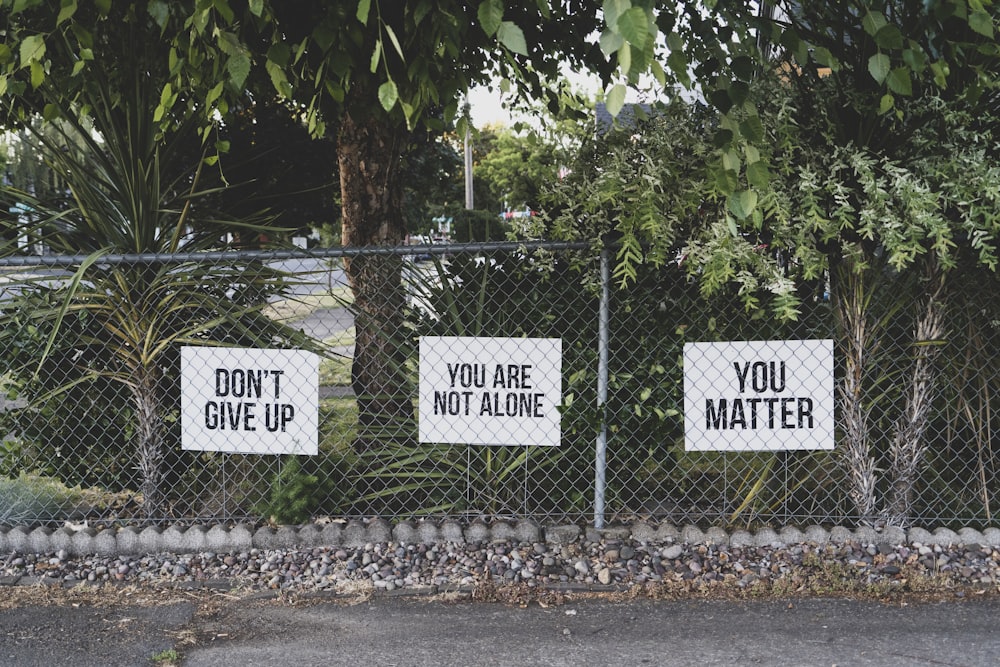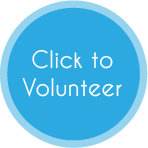Substance Use Blog Series: Family Resources
Aug 21, 2020
In previous Substance Use Services’ posts, we looked at resources for Delta adults and youth who use substances (click on the links to visit to those pages). Today’s post is for family members and close friends who are concerned about someone else’s substance use.

Please call the Deltassist Substance Use Services team or any of the other resources in the second half of the post to discuss concerns you may have around these topics further.
*****************************
Adult family members often struggle to find a balance between supporting the person who is using substances and putting limits on any destructive or abusive behaviours that result from the substance use. Finding this balance can be an emotional journey with very painful periods. No forms of abuse are ever justifiable. We invite you to seek social support from friends, peer groups, and/or professionals if you are coping with the challenges of having to set limits with a loved one in the present, or if you are processing a loved one’s problematic or abusive past behaviours. Resources for making these connections are at the bottom of this post.
Everyone is responsible for keeping children and youth safe.
Children and youth have less control over their environments and are not able to set boundaries the same way adults can.
Just because a caregiver is using substances problematically, does not mean they are abusive or neglectful as a parent.
However, it is the legal and ethical responsibility of all the adults in a child’s life to ensure that the child is safe by reporting concerns they may have about their emotional and physical safety to the BC Ministry of Children and Family Development (MCFD) at 1 (800) 663-9122.
 Calls can be made anonymously, although it helps the social worker understand the child’s situation better if they know who the caller is in relation to the child.
Calls can be made anonymously, although it helps the social worker understand the child’s situation better if they know who the caller is in relation to the child.
Anyone 18 years of age or under is considered a child and the responsibility of MCFD.
Only MCFD Social Workers have the professional and legal authority to determine whether the behaviour is abusive or not. MCFD social workers will assess and investigate the concern and determine how to support the child. Most commonly this involves offering the parents services like counselling or parenting skills training.
Find out more on reporting child safety concerns here at the MCFD website.
You can also call MCFD and request free family counselling for your own family, if you have children 18 years of age and younger and would like to make changes to your family dynamics or are finding your parenting obligations overwhelming.

How caregiver substance use affects children
While the negative effects of abuse and neglect are well known, determining the effects of other family-member-behaviours due to problematic substance use has been challenging for researchers because family dynamics are naturally complex, and different children cope with stress in different ways.
What we do know is that childhood psychological health revolves around consistent emotional responsiveness from a primary caregiver (or several). This responsiveness allows the child to develop a sense of security and a bond with the adult known as an attachment.
Problematic substance use can easily disrupt the consistency of caregiver responses so that the child no longer trusts the parent to meet their emotional needs.
It’s important to note that the child does not make a decision to stop trusting the caregiver, the child’s emotional and physical sense of security around the caregiver is disrupted. This can have a lasting effect on how the child connects with other people later in life including into adulthood.

Children can also be affected by their sibling’s and other family member’s problematic use of substances. This may come in the form of stress caused by conflict with their siblings or fear for their own or their sibling’s safety.

Fraser Health’s tips for caregivers talking to children and youth about substances. More information on their website here and further down on this page.
Managing boundaries with people who use substances
From Grief to Action is a volunteer-based not-for-profit association in British Columbia that has provided support for families and friends of substance users since the 1990s. They have created a free ‘coping kit’ manual for parents and loved ones. Some of their recommendations for managing family boundaries with people who use substances are:
- If your child or loved one lives with you, be honest with yourself and your family members about the behaviour you are prepared to accept from a loved one who is using alcohol or other drugs. This may have to be a group effort if the family is to survive the experience intact. Open and direct family communication is usually the most constructive approach.
- All family members can play a part in change. However, effective change can be and often is still achieved with one or two supportive and committed members of the family.
- Don’t accept physical or
psychological abuse as normal—it is never OK for you to be mistreated or abused by anyone.
- Make sure the person using alcohol or other drugs understands the boundaries that you are setting and the consequences that will result from failing to adhere to them. It’s up to you to follow through.
- Supporting your child or loved one to get addiction treatment may be your goal, but it is important to remember that, ultimately, your child or loved one will choose whether or not treatment is right for them at this point.
Access the rest of the From Grief to Action manual by visiting the webpage and following the instructions to have a free ‘coping kit’ manual emailed to you.
Talking to Children and Youth about Substance Use
Fraser Health has made the following video (and the infographic earlier in the post) to help parents and caregivers talk to children and youth about substances.
There are many other family member concerns that have not been touched on in this short blog post. We encourage you to reach out to some of the following resources to continue to learn about the experiences of others and find supportive environments to share your own story.
***************************
Resources for Family Members of People using substances
Counselling
Deltassist Substance Use Services offers counselling to both people who use substances and people affected by the substance use of others. There are no age restrictions to the Deltassist program although clients must be residents of Delta. There is both group and 1:1 options, including online groups running through the pandemic.
- (604) 594-3455 ext. 108
9097 120 Street, North Delta
Deltassist also has a location in Ladner but all intakes are completed by phoning the North Delta office. Sessions are currently being done by phone or online due to the Covid-19 pandemic but keep in touch as things may change shortly.
Little House Alcohol & Drug Addiction Recovery offer a free education and support counselling group called Heart of the Family. Their website states that the group covers topics such as: “How to set boundaries and not enable. How to talk to our loved-ones when they are ready to talk. How to address all the trauma. The importance of self-regulation.” The group is currently being run online due to the pandemic.
- https://www.littlehousesociety.ca/
- (778) 522-5160
- 5061 12th Avenue, Tsawwassen
Support Groups
Al-Anon is an organization of peer support groups founded in 1951 by family members of folks attending AA. Anyone can attend Al-Anon who has been affected or is currently being affected by a loved one’s alcohol use, including adults who grew up with a parent using alcohol problematically. They also host Alateen meetings for young people aged 13 to 18 who are impacted by someone else’s drinking.
- Find a local or online Al-Anon or Alateen meeting at their main website: https://al-anon.org/ or at the provincial website: https://www.bcyukon-al-anon.org/.
Nar-Anon is similar to Al-Anon but the sharing at support meetings is more often about other kinds of substance use (as opposed to Al-Anon which focuses on Alcohol).
- Find a local or online Nar-Anon meeting at their main website: https://www.nar-anon.org/ or their provincial website: https://naranonbc.com/.
SMART Recovery Friends and Family Meetings
SMART Recovery is an abstinence based, not-for-profit organization offering information and support meetings for people interested in recovery. They also have meetings for friends and family of people who use substances.
- Local and online Friends and Family Meetings, as well as information and podcasts for family and friends, can be found by following the links on the SMART Recovery webpage here: https://www.smartrecovery.org/family/
Starting Your Own Group
If none of the above groups meet your needs, the Vancouver based association From Grief to Action has made a guide for starting a parent support group at https://www.fromgrieftoaction.com/current-issues/public-policy-initiatives/family-support/free-resources-form/.
Online literature
- As previously mentioned, from Grief to Action has created a free ‘coping kit’ manual for parents and loved ones of people who use substances. It is available at their website here.
- The Centre for Addiction and Mental Health (CAMH), Canada’s largest mental health teaching hospital Canadian, has created a free online course for family members of people who use substances titled: Empowering families affected by substance use.
- Here to Help, the website https://www.heretohelp.bc.ca/ has videos, information sheets and an online workbook for family members of someone who uses substances available here.
Fraser Health on Talking to Loved One’s about Overdose Prevention
In a previous blog post (here), we shared a link to a pamphlet made by Fraser Health that offers advice for friends and family members on engaging their loved ones about overdose prevention strategies in non-stigmatizing ways (here is the link to the pamphlet again). Or click here to visit Fraser Health’s webpage about ‘Starting a conversation about overdose prevention” where there is more information and links to useful resources. The following video is a related part of Fraser Health’s overdose prevention campaign.
https://www.youtube.com/watch?v=T3W6Xx4-gD4&feature
The following video (4mins 42 seconds) reviews some strategies for coping with a parent who has a problem with alcohol use, but the information is applicable to many other relationships as well.
Note, the video was posted in 2016 and uses the term alcoholic. The Fraser Health Authority and the Government of Canada both recommend using person first language instead of terms like addict or alcoholic. This is because people are more than their relationship with substances, and reducing their identity to a single descriptor can be stigmatizing. Go to this Government of Canada website to find out more about how language matters in changing stigma about addiction.
[1] https://childhealthpolicy.ca/wp-content/uploads/2014/01/RQ-1-14-winter.pdf
~If you need immediate support coping with a crisis while waiting for help, please call the Fraser Health Crisis Line at 604-951-8855 or toll-free 1-877-820-7444. They are open 24/7. ~
Still images from this post are from the open source websites https://unsplash.com/ and https://pixabay.com/











